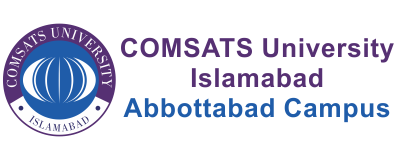In addition to the graduate research labs dedicated for each research group, there are project labs which are established by the faculty of this department who have won research grants from either HEC, PSF, IFS, DoST, etc. The details of the labs along with a short description of specialized reserach activities is given below.Name of Project Lab: Photovoltaic Materials and Solar Cell LaboratoryPrincipal Investigator: Dr. Ahson Jabbar ShaikhLocation: E-8Description: We are working on the synthesis and fabrication of various organic and inorganic hole and electron transport layers for 4th generation perovskite solar cells and quantum dot solar cells. Currently, we have most advanced DLS Instrument Zetasizer Nano ZSP from Malvern Panalytical, a glove box from Vigor, USA and a Laminar Flow in our lab.We are also focused on electrical, optical, and structural assessment of materials along with characterization and diagnosis of photovoltaic cells in collaboration with PCRET (Pakistan Council of Renewable Energy Technologies) Islamabad, Pakistan. Name of Project Lab: Solid State Chemistry LaboratoryPrincipal Investigator: Dr. Rafaqat Ali KhanLocation: I-4
Description:Solid state chemistry laboratory is equipped with vibrating sample magnetometer that is air cooled and operate at room temperature with applied magnetic field of 0.8 Tesla. In the laboratory, research is carried out in order to understand the magnetic behavior of different solid state materials. The variations in the magnetic behavior of particles at nanoscale are studied at nanoscale for proposed applications in data storage devices, transformer cores and MRI applications. In the laboratory we have an ability to characterize thin film, granules as well as powdered materials. Our main focus is on the magnetism in superparamagnetic particles (single domain) including ferrite nanoparticles (multi domain).Name of Project Lab: Computational and Theoretical Chemistry LaboratoryPrincipal Investigator: Prof. Dr. Umar FarooqDescription:Our Computational and Theoretical Chemistry Laboratory covers wide range of state of the art research facilities when it comes to molecular chemistry, biochemistry along with drug discovery and development. The highlights of the laboratory are as follows:
- Computer facilities
Our laboratory is well equipped with a proper server designated for the said job with high speed CPUs and GPUs (core i7-8500 and core i9-800). The system is completed with four high voltage batteries which not only help to run several theoretical chemistry software but also provide great backup time for running simulations in case of unexpected and long time electricity power cuts.
- Docking studies and dynamic simulation
We, in our laboratory, provide a platform for advanced molecular docking studies and dynamic simulation studies based on different computational tools and software’s including but not limited to MOE (Molecular Operating Environment) software.
- Drug design and modeling
For the purpose of drug design and modeling, we use CHIMERA and Discovery Studio Visualizer as the basic tools along with several other facilities in hand.
- Specialized tools
Our laboratory also has access to a number of specialized online tools for fulfilling the purpose of various research activities which could be helpful in the process of drug discovery and development as well as protein modeling.
Several good impact factor publications have been generated along with a hand full of successful PhDs by utilizing the resources present in this theoretical chemistry laboratory. The laboratory has extensively contributed in the field of theoretical chemistry at national and international level.Name of Project Lab: Enzyme Chemistry Laboratory/Biochemistry LaboratoryPrincipal Investigator: Prof. Dr. Umar FarooqDescription:Our Enzyme Chemistry Laboratoryis multidisciplinary where a wide variety of enzyme inhibition assays can be performed along with kinetic studies which cover major research areas in the fields of drug design and discovery.
- SpectraMax M2 ELISA
Our laboratory contains SpectraMax M2 ELISA Reader for high throughput screening of library of compounds. Several series of synthesized as well as isolated natural products and natural product based compounds have already been screened in this lab with very promising and positive results.
- Enzyme inhibition assays
We perform different enzyme inhibition assays such as Carbonic anhydrase inhibition assay, Urease inhibition assay, Acetylcholinesterase and butyryl-cholinesterase inhibition assay etc.
- Rotary evaporator
Our laboratory is equipped with wide range of instruments from simple to more sophisticated and automated which includes rotary evaporator for the purpose of complete drying of solvents from the synthesized or isolated compounds before taking them up for analysis.
- pH meter
The pH meter of high precision for determination of correct pH of buffers and stock solutions is a part of our laboratory.
- Centrifuge machine
High speed centrifuge machine is there which can help in preliminary separation of impurities from the samples being evaluated.
- Analytical balance
Very sensitive digital balance for correct weight measurements of solids and liquids is present in our laboratory.
- Specialized bio refrigerator
A refrigerator is available which can attain a temperature of -30 0C and serves the purpose to store temperature sensitive chemicals and enzymes in cold environment.
- Ultrasonic bath
An ultrasonic bath for good solubility achievement of samples is part of our laboratory.
- Vortex
A vortex for shaking samples and multichannel pipette set containing several channels for fast and advanced sample input is present.
- UPS
The instruments are connected in the lab to electrical supply by means of uninterrupted power supply source (UPS) which helps in smooth running of the instruments with no effect of unannounced power cuts on the performance of the instruments.Name of Project Lab: Organic Synthesis and Sensor LaboratoryPrincipal Investigator: Dr. Sohail Anjum Shahzadlocation: A-01Description:
A:Development of Chemical Sensors&Biosensors
Development of fluorescence-based chemicalsensors and biosensors is an active area of research. Our research focuses on synthesis of advance organic fluorescent dyes and fluorescent polymers for the development of sensitive fluorescence detection methods for a wide range of pharmaceutical applications, environmental pollutants including detection of pathogens and toxic substances, determination of drug residues or toxic substances in food and drug discovery process. Palladium catalyzed Suzuki cross coupling reactions and McMurry coupling methodology along with other important synthetic methods are being used to synthesize structurally diverse organic fluorescence dyes and fluorescent organic polymers.

Description A:Development of Synthetic Anticancer Agents
We are workingin the field of synthetic organicchemistrywhere our research focuses ondiscovery ofnew thymidine phosphorylase and angiogenesis inhibitorsto treat various kinds of cancer. We are attracted towards syntheses of novel motifs of isoxazoles, coumarins, indoles, furans, fused indole, thalidomide analogues,1,4-dihydropyridines (DHPs)and advance derivatives of oxadiazolesto evaluate angiogenesis inhibitors, thymidine phosphorylase and tyrosine kinase inhibitors.
Available Facilities:(1).Fluorescence Spectrometer Model FlouroMax-Plus-P-C, Horiba Jobin Yvon Technology, USA; (2). Rotary Evaporator; (3). Vacuum Oven; (4). Analytical Balance; (5). Distillation Unit; (6). Hotplates with Magnetic Stirrer; (7). A wide range of chemicals/solvents and glassware for chemical reactions and fluorescence analysis; (8). Computers for literature search/preliminary computational studies.
Name of Project Lab: Colloids Laboratory
Principal Investigator: Dr. Asad Muhammad Khan
Description:
Colloids Lab research work involves projects related to Colloids, Surfactants and Nanomaterials in different Colloidal forms. The Colloids lab owns equipment to characterize surfactant interactions spectroscopically and electrochemically in addition to the studies related to the interfacial properties of range of different colloidal systems such as suspensions, emulsions, microemulsions, colloidal nanoparticles, optically and electrochemically responsive and photocatalytic materials, surface active materials etc.The lab is open for collaborations, application development etc., in partnership with academia as well as industry nationally and internationally.If you want to work with us or if you have any other queries please contact Dr. Asad Muhammad Khan amkhan<at>cuiatd.edu.pk

